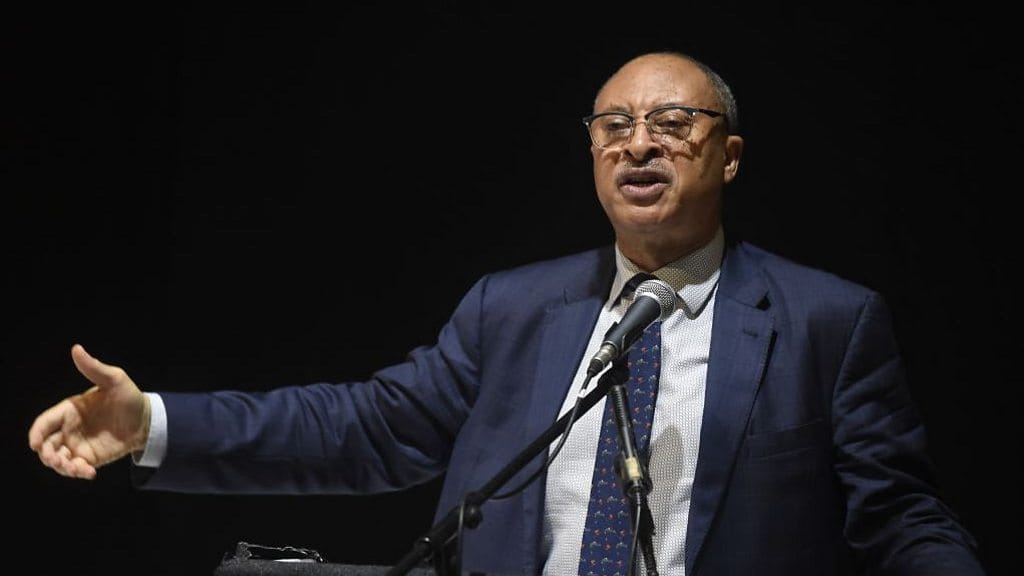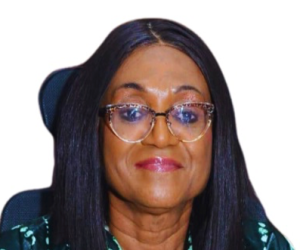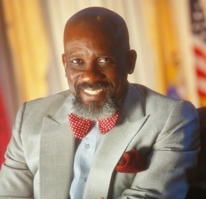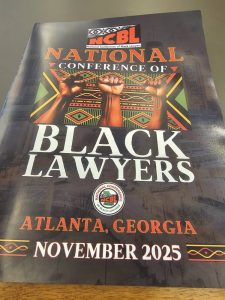I want to begin by thanking the leadership of the African Bar Association for both the choice of topic and venue to discuss this topic, as well as for asking me to be keynote speaker.
I would like to set up a scheme for my remarks and conversation.
First, I would like to show the wisdom in your topic as it relates to how law and commerce depend on each other, making the theme appropriate for a continental Bar conference.
I would then look at how trade has treated Africa and perhaps the role of the law and Lawyers.
I would then look at how colonial intervention has disrupted natural trade development and created conditions of dependency and exploitation but also of opportunities for collaboration and growth.
Finally, I will speak to issues of a new consciousness in AfCFTA, and continental development finance institutions becoming the basis of a new narrative on Africa’s economic prospects, away from the narrative of Afropessimism.
I am pleased this meeting is in Accra because it was here in 1958 that the legendary Ghanaian leader, Dr Kwame Nkrumah gathered leaders of emerging Africa to consider their future economic possibilities just as he was taking counsel from Sir Arthur Lewis who wrote the document on the Industrialization of the Gold Coast and would become the first black man to win the Nobel Prize in Economics.
How well have ideas of 1958 propelled forward the economies of Africa which were soon in a debt crisis and compelled to embark on structural adjustment programmes that did not deliver on promise?
INSTITUTIONS AND HUMAN PROGRESS
The growing consensus about how man’s life advance came about increasingly comes around institutions. Historians like Niall Ferguson, Economists like Oliver Williamson, Economic historians such as Douglass North, and Political Economists like my Head of Department in Graduate school, Elinor Lin Ostrom who became the first woman to win the Nobel Prize in Economics, agree that Institutions have been critical in separating history’s more prosperous from the poorer ones. Two of last year’s winners of the Nobel Prize for Economics Daron Acemoglu and James Robinson in the book Why Nations Fail show fitting examples of how the paradigm on Institutions and development subsists.
There are still competing but related explanations like the Princeton Economist Angus Deaton who won the 2015 Nobel Prize in Economics for his analysis of consumption, poverty and welfare who shows in the book The Great Escape: Health, Wealth and the Origins of Inequality, that advances in healthcare is a major sift of nation’s that prosper from those that stay poor; and those that focus on how values shape human progress. The latter school is captured in a Harvard colloquium in the late 1990s and the book Culture Matters which summed up proceedings of the colloquium. The consensus is that Institutions matter.
My own work which focuses majorly on the interdependence of Institutions, Culture, Entrepreneurship and Leadership to produce progress; from my 1998 book Managing Uncertainty, to the 2006 book Why Nations Are Poor, recognize the crucial play of Institutions in human advancement.
So, what are these Institutions?
They are essentially rules that set boundaries to conduct and when they become settled habits of a community, these boundaries allow people to evaluate possible outcomes of ventures.
Prime among institutions is the rule of law. Commerce does not thrive without the rule of law, property rights, smart bankruptcy rules and what the Peruvian Economist Hernando De Soto calls ‘representational’ systems like Land Registry which make assets fungible and transition them to access to capital.
The poor, de Soto argues, have assets that cannot be collateral security for a loan because they are not listed in a land registry with a market where they can be easily traded.
LAWYERS AND COMMERCE
The French Laissez faire parliamentarian, Frederic Bastiat, who wrote The Law, just before he passed away in 1850 could not have imagined he would gain folk hero status among students of Institutions and economic performance. Beyond Bastiat’s view of law as codification of power relations and therefore an instrument of oppression. Language of agreement has been a basis of cheating between peoples historically.
Commercial exchange required trust and precision of interpretation of what was agreed. The more powerful have used skill in that area to take advantage of the weaker.
AFRICA AND AFRICANS IN WORLD TRADE
In the last few years, I have been Chairman of PAFTRAC, the Pan African Private Sector committee on trade and Investment. It is a period during which I have reflected much on world trade and development.
Africa was in exchange relations with Europe before slavery and colonization. Why did the nature of the relationship change at each stage.
How did this continent that fascinated European explorers who were amazed at the absence of beggars on its streets become attractive for extracting slaves?
The changing means of economic production which required plantation Labour.
In the process one of those slave plantation economies rebelled and became independent. In 1789 that plantation Island had the highest per capita income in the World. It would end up the poorest country in the Western hemisphere. Today Haiti is a basket case.
Colonialism followed the onset of the Industrial Revolution driven by the redesign of the steam engine by Scottish inventor James Watt in the year of American Independence. Raw materials were required to feed the factories of Europe and the Berlin conference that partitioned Africa was to provide secure access to territories from which to procure cheap raw materials.
Even though the intention was exploitative, produce exports provided a revenue source that the moral economy of the peasant would not have generated.
Perhaps the biggest harm to African economies was the fragmentation of economies in Africa with linkages northward to the metropolitan centre in Europe. The inequity in value adding allowed companies like Nestle to get Cacao from Cote d’Ivoire, Ghana, and Nigeria and make profits far above what the three countries put together have as well revenues from exports. (of the raw materials)
It is easy to talk about How Europe Underdeveloped Africa, as Walter Rodney provided evidence but the key for me is in how you use knowledge and creativity to achieve a more equitable order.
Discontent with inequities in the global economic order resulted in pressures for a North South dialogue in the 1970s. A summit was agreed to for Cancun in Mexico. Then President Jimmy Carter lost the 1980 US elections. Ronald Reagan did to the trends on trade back then what tariff policies of Washington are doing today. We are not likely to reach negotiated equity. The creativity of the disadvantaged to escape the system seems to be the way that has worked.
The South East Asia Miracle was precisely about that. In the book, Culture Matters, Samuel P Huntington Jnr compares Ghana and Malaysia, just as my friend Peter Lewis of Johns Hopkins does for Nigeria and Indonesia in his book Growing Apart.
In my view little gain will come from reliving Dependency Theory which I called elegant theorizing without redeeming features that show a path out of the trap.
I am persuaded that intra-African trade with working groups to break the constrictions to cross border trade. (is the way to go).
Then there are opportunities to construct new narratives about the treasure at the bottom of the pyramid and elite to see prosperity in aggregation across borders that Agenda 2063 and AfCFTA offer.
HOW MUCH HAVE LAWYERS DONE
From the beginning I introduced Bastiat to show how lawyers help build institutions. Now let me compare with some of my own experience.
Rajan and Zingales give credit for easier access to capital to judicial activism and celebrate a jurist, Louis Brandeis for some laws that encourage venturing.
On the other hand, it seems like judges in Africa make it harder to venture by how they interpret laws. In Nigeria currently people are running from providing guarantees to entrepreneurs because of how Bank Verification Numbers are being used to broadly cripple such people. Bankruptcy laws in America are designed to give entrepreneurs another lease of life but in most of Africa it scares people from venturing.
Let me wrap up.
I am sorry a sudden health challenge has meant I am not present to speak to my talking points and expand the message as I speak. In spite of that I hope the heart of the message has reached home.
The amorality of international power politics and trade that goes with it requires that Africa’s elite use associational life, like the African Bar Association, to find institutional pegs that increase intra- African trade, and deploying strategy like building competitive play on value chains rooted in its value chains where its latent comparative advantage fuels limited Industrial policy.
You owe Africa that.
Patrick Okedinachi Utomi is a Professor of Political Economy & Management Expert





